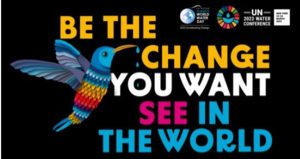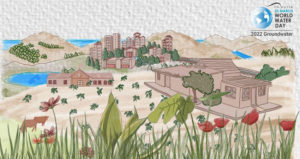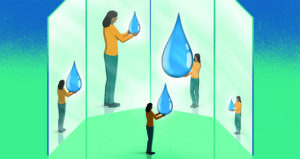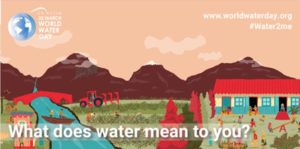UN condemns attacks on water infrastructures
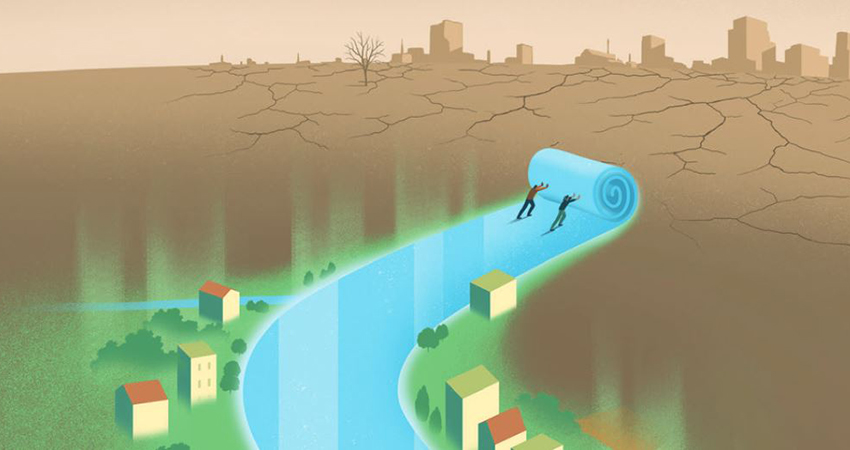
-
 Editorial Team
Editorial Team
Share article:
Attacks against civilian water infrastructure, including treatment plants, distribution systems and dams violate international law and must be severely condemned by the international community in all cases. This is stated by the UN in the UN World Water Development Report that was published on World Water Day 2024 with the thema ‘Leaveraging water for Peace’.
The UN World Water Development Report describes that sustainable water management generates a lots of benefits to individuals and communities. Think of health, food and energy security, protection from natural disasters, education, improved living standards and employment, economic development, and a variety of ecosystem services. ‘It is through these benefits that water leads to prosperity. And equitable sharing of these benefits promotes peace. When it comes to water, sharing truly is caring. The choice is ours’, concludes the UN-report.
No clean water in war zones
The theme of World Water Day 2024 that was celebrated the 22th of March was ‘Leveraging water for Peace’. In a world full of conflict and war this theme could not have been better. In war zones the accessibility to clean drinking water is extremely difficult. Attacks to water infrastructure are attacks to human rights everywhere around the world. UN-Water has organized World Water Day on 22 March every year since 1993. Good water governance is key for peace. This vital resource needs to be managed at an international level as the world’s rising population and climate change impact on water like no time before. Attacks against civilian water infrastructure have to be condemned by the international community in all cases.
Water for Peace
World Water Day celebrates water and raises awareness of the 2.2 billion people living without access to safe water. It is about taking action to tackle the global water crisis. A core focus of World Water Day 2024 is to support the achievement of Sustainable Development Goal 6: water and sanitation for all by 2030. At Stockholm Water Week 2023 in August the Leveraging Water for Peace theme was discussed. A keynote video speech from Danilo Türk, the human rights expert, who served as President of Slovenia from 2007 to 2012, spoke of the required mechanisms. Türk spoke of ‘the greatest water disaster in Slovenia’s history’ when billions of euros of damage was caused in the summer floods. “Fortunately there were very few human casualties. And human solidarity both at the national and international level is now in full display,” he said.
Floods lead to solidarity
“Big floods tend to generate solidarity among people and co-operation among states. All this contributes to social cohesion and thus to peace. But is it necessary to wait for disasters to happen?,” Türk asked. “Many, although, I must say not all, water disasters can be prevented. International transboundary water co-operation represents an effective form of prevention of many water disasters,” Türk said.
Droughts create competition
But the human rights expert warned that “prolonged droughts create competition for water and forced migration. This often leads to violent conflict.” Türk said the solution was “water co-operation, in particular transboundary and regional water co-operation” which “can go a long way to prevent such deterioration and contribute to the maintenance of social stability and peace.”
Contamination and lack of access to water
Peter Gleick, who co-founded the Pacific Institute in Oakland, has spent the last three decades studying the link between water scarcity, conflict and migration and believes that water conflict is on the rise. “With very rare exceptions, no one dies of literal thirst,” he told Reuters. “But more and more people are dying from contaminated water or conflicts over access to water.”
European water conflict
In Europe, agriculture is extremely vulnerable to water scarcity and farmers are searching for solutions. In France, megabasin reservoirs are filled from aquifers during the winter for farmers to use during the spring and summer growing seasons. In theory they reduce the strain on the aquifers during increasing summer droughts, though critics say the water is only available to the participating farmers. A confrontation between thousands of protesters and French police over a mega-basin project in Sainte-Soline, Deux-Sèvres, west-central France, in October 2022 left serious injuries on both sides and thrust the visibility of these massive above ground agricultural reservoirs into the spotlight.
Accelerate change
In 2023 the theme of World Water Day was Accelerating Change. Solving the water and sanitation crisis through accelerating change was the urgent message for this year’s World Water Day. There are less than seven years to achieve the ambitious aim of the United Nations’ Sustainable Development Goal (SDG) 6 of safe water and sanitation for all by 2030. UN secretary-general António Guterres wrote on social media: “The world is woefully off-course to achieve our goal of water and sanitation for all by 2030. Billions of people still don’t have safe water and toilets. We can all do something to accelerate change.”



